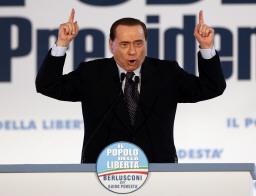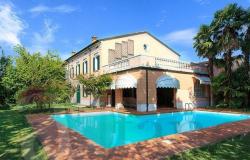Premier Silvio Berlusconi on Friday defended a remark he made that Milan ''seemed like an African city'' because of the number of foreigners in the streets.
''I took a photograph of reality by referring to a walk through a central street in Milan where I saw 60% of people were foreigners and 40% were Italian,'' Berlusconi said.
''I asked myself if this is the Italy of the future that Italians want: the answer is no''.
The premier first made the comment as he highlighted the government's crack-down on illegal immigration on Thursday evening ahead of this weekend's European Parliament elections.
He said he ''could not accept'' that Italian cities, including Milan, seem African rather than European.
Piero Fassino of the opposition Democratic Party (PD) slammed the premier's comments as ''disconcerting''.
''The premier should know that many immigrants live, work and contribute to the richness of the region,'' he said.
Milan Provincial President Filippo Penato, also of the PD, said Milan wasn't ''the capital of Burundi'', but nevertheless agreed that there was a high percentage of immigrants in the city.
''There are certainly too many Roma (gypsies) and illegal immigrants and in these years Milan's right-wing council has not done enough to stop it,'' he said.
But Milan Deputy Mayor Riccardo De Corato laid the blame at the feet of the former centre-left government.
''We have undergone an influx of migrants who were scientifically desired by the centre-left,'' he said.
De Corato praised Berlusconi for his comments, saying this showed he ''doesn't live on the moon but walks around Milan''.
This is the second time in two weeks that Berlusconi has said Italian cities seem more African than European, but last week he blamed poor upkeep for the comparison.
''It's painful to wander around cities like Rome, Naples and Palermo and see that with the graffiti and the filth on the streets they seem more like African cities than European ones,'' he said in a radio interview.




